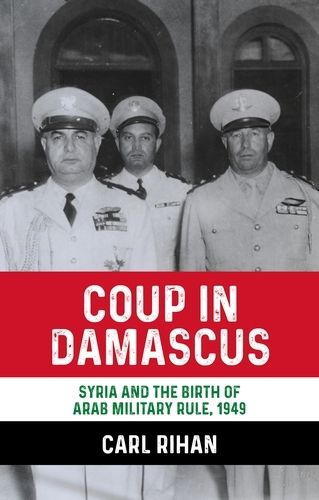Readings Newsletter
Become a Readings Member to make your shopping experience even easier.
Sign in or sign up for free!
You’re not far away from qualifying for FREE standard shipping within Australia
You’ve qualified for FREE standard shipping within Australia
The cart is loading…






Coup in Damascus examines the military takeover of Syria in 1949, an event which precipitated the rise of authoritarianism across the region.
Connecting economics, politics and history, it challenges traditional interpretations grounded in international relations by shifting the focus away from geopolitics and postcolonial studies, affirming instead the primacy of cost-calculating, utility driven political action. By bringing neoclassical and Austrian economics into contact with Middle East history, Coup in Damascus demonstrates how unsound monetary practices, the disruption of trade routes and excessive interventionism upset social and institutional equilibriums thereby leading to authoritarianism.
Coup in Damascus also highlights how lingering tensions, or spillover costs, normally resolved through economic and political exchange, congested political systems thereby triggering violence and recurrence.
$9.00 standard shipping within Australia
FREE standard shipping within Australia for orders over $100.00
Express & International shipping calculated at checkout
Coup in Damascus examines the military takeover of Syria in 1949, an event which precipitated the rise of authoritarianism across the region.
Connecting economics, politics and history, it challenges traditional interpretations grounded in international relations by shifting the focus away from geopolitics and postcolonial studies, affirming instead the primacy of cost-calculating, utility driven political action. By bringing neoclassical and Austrian economics into contact with Middle East history, Coup in Damascus demonstrates how unsound monetary practices, the disruption of trade routes and excessive interventionism upset social and institutional equilibriums thereby leading to authoritarianism.
Coup in Damascus also highlights how lingering tensions, or spillover costs, normally resolved through economic and political exchange, congested political systems thereby triggering violence and recurrence.